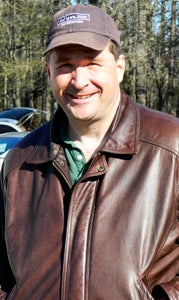Success and fun combine at SYAA
Published 11:41 pm Thursday, January 3, 2013

Patrick Bales 2012 SYAA U-12 recreational league soccer team holds up its hard-earned reward after winning the championship to conclude the season.
As a soccer coach for the Suffolk Youth Athletic Association, Patrick Bales has made a powerful impact on players and SYAA through his dedication to helping new kids each year have fun and excel at soccer.
“This past fall, his U-12 team won the championship,” SYAA soccer commissioner Stacy Pauley said. “His U-12 team normally ends up winning the championship.”
There are at least a couple of reasons why this consistency is impressive. The first is a natural part of how the SYAA recreational teams are built, as opposed to the higher-level, more intense select and advance teams.
“The rec teams, you can request a coach, but a coach is only going to get so many returners, because they try to, basically, create parity,” Bales explained. “But we’ve done pretty well having the new bunch of kids. In fact, I’ve had seasons where the only kid that’s been on my team before is my own kid.”
Pauley benefits from Bales’ faithfulness and dedication to working in the rec league and being able to successfully communicate the game of soccer to new players.

Patrick Bales has proven himself valuable to all the kids that he coaches and to the SYAA rec league. Over the last four years, he has guided consistently successful teams despite having almost entirely new rosters each year and having to play multiple different styles of the game.
“That’s something we would love to find in every coach that we have,” Pauley said. “Of course, that’s something that’s few and far between. Most coaches that are like that end up coaching advance teams. But when his son made it onto a U-10 advance team, I didn’t really expect him to stay and continue to coach rec, but he did. It’s just because he loves to do it and loves to work with the kids.”
Bales, who practices law in Suffolk, got his start coaching for the SYAA recreational league four years ago, when his eldest son Colin was eligible for U-10.
“My oldest used to come out here and play,” Bales said. “He decided he didn’t want to do it anymore. And Connor moved up to the advance level, but I kind of look at it as they’re all my kids. I’ve been coaching for several seasons. This season, I was cheering for people on both sides, because I’ve coached people on both sides.”
This fall season posed a unique challenge to both Bales and his team, because the U-12 rec division had just two coaches, Bales and Michelle Jackson. This meant that though there were enough kids for multiple teams, only two existed, forming two roughly 18-player rosters.
“Those ‘super teams’ were split amongst themselves,” Bales explained. “For example, I had one team wearing dark blue as the Vancouver White Caps, and one team wearing light blue as Sporting Kansas City.”
The coach-to-player ratio helped open the door to a rotation of different game styles.
“Coach Jackson had her team split into two, so some weekends we’d play a mass of 11 versus 11, where the whole teams come together,” Bales said. “Sometimes they played (three-on-three), which is a completely different style of game. It’s a lot faster paced, a lot more offensive-oriented. Sometimes we played just seven versus seven. It really depended on the week, but we went through a lot of different permutations.”
Bales found that a key to success is not forcing kids into certain roles.
“Basically, in practice, try everybody out everywhere, and I may think they’re better somewhere else, but if it’s not something that they want to do or not something that they’re ready to do, then its not going to be something they enjoy,” he said.
Bales tried to inspire a good work ethic in his players.
“I will say that one of the big motivators on the team would have to be Hannah Strickland,” Bales said with a laugh. “If she thought you were slacking off, she would be right up there, going, ‘Oh, no, you don’t!’”
She and her brother, John Henry, were among the important contributors to the championship season.
“They teamed up,” Bales said. “They worked together phenomenally well on defense.”
Pauley said the emphasis is on fun in recreational soccer.
“A lot of time when you get to advance, a lot of the coaches forget that it’s still about having fun and teaching the sport, and some of the players forget that too,” she said.
Bales agrees, and he gives his players credit for keeping the fun and the success.
“It’s really not anything that I’m doing that’s making me or my teams more successful,” he said. “It’s what the kids are doing.”






